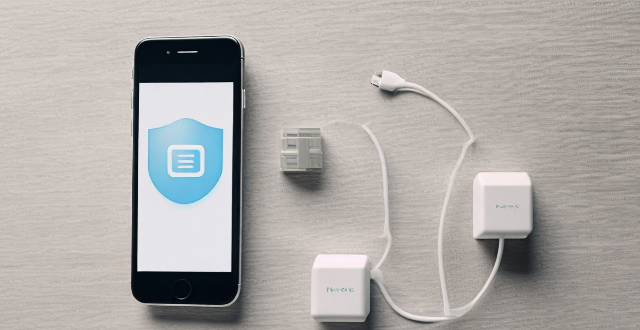Overcharging, or leaving your phone connected to a power source after it has reached 100% charge, can have negative effects on your phone's battery lifespan and overall performance. Using a phone charging cable is generally safe as long as you use a reputable brand and ensure compatibility with your device. To prevent overcharging and maintain battery health, unplug your phone once it's charged, use original or certified cables, monitor battery health, avoid charging under extreme temperatures, and regularly update your device's software.

Can Overcharging Damage My Phone's Battery Using a Phone Charging Cable?
Introduction
Overcharging is a common concern for many smartphone users. With the increasing reliance on mobile devices, it's crucial to understand how overcharging can affect your phone's battery and whether using a phone charging cable plays a role in this process. In this article, we will explore the potential impact of overcharging on your phone's battery and provide tips to maintain its health.
Main Points
What is Overcharging?
Overcharging occurs when you leave your phone connected to a power source after it has reached 100% charge. While modern smartphones are designed with safety features to prevent damage from overcharging, prolonged exposure to excessive voltage or current can still have adverse effects on the battery.
How Does Overcharging Affect My Phone's Battery?
Overcharging can lead to several issues, including:
- Reduced Battery Lifespan: Continuously overcharging your phone can cause the battery to degrade faster, reducing its overall lifespan.
- Increased Heat Generation: Overcharged batteries generate more heat, which can further damage the battery and other components within the phone.
- Battery Swelling: In extreme cases, overcharging can cause the battery to swell, potentially leading to safety hazards.
Is Using a Phone Charging Cable Safe?
Using a phone charging cable is generally safe as long as you use a reputable brand and ensure that it's compatible with your device. However, there are some factors to consider:
- Quality of the Cable: Cheap or low-quality cables may not provide proper voltage regulation, increasing the risk of damage to your phone's battery.
- Compatibility: Make sure the cable is compatible with your phone's charging port and supports fast charging if necessary.
- Avoid Counterfeit Cables: Counterfeit cables may not meet safety standards and could potentially harm your device.
Tips to Prevent Overcharging and Maintain Battery Health
To minimize the risk of overcharging and maintain your phone's battery health, follow these tips:
1. Unplug Your Phone Once It's Charged: Disconnect your phone from the charger once it reaches 100% charge to avoid overcharging.
2. Use Original or Certified Cables: Stick to original or certified charging cables to ensure proper voltage regulation and compatibility with your device.
3. Monitor Battery Health: Use built-in features or third-party apps to monitor your battery's health and replace it if necessary.
4. Avoid Charging Under Extreme Temperatures: Charging your phone under high temperatures can accelerate battery degradation, so try to keep your device cool during charging sessions.
5. Update Your Device: Regularly update your phone's software to take advantage of any improvements or optimizations related to battery management.
Conclusion
While modern smartphones are designed to handle occasional overcharging without significant damage, consistently leaving your phone connected to a power source beyond a full charge can have negative effects on its battery lifespan and overall performance. By following the tips outlined above and using high-quality charging cables, you can help maintain your phone's battery health and extend its lifespan.